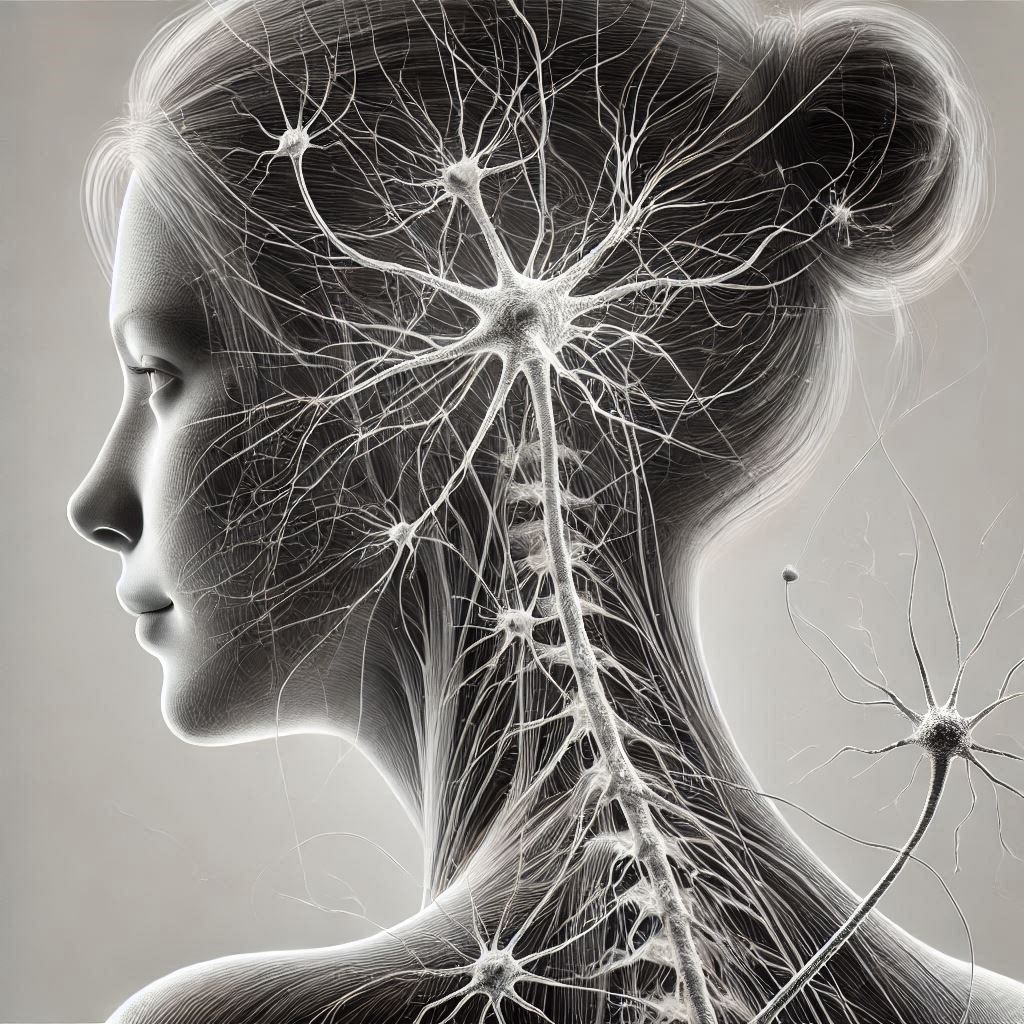Do you find yourself tossing and turning at night, unable to get a good night’s sleep? If panic disorder is part of your life, this scenario might be all too familiar. Panic disorder doesn’t just hijack your days; it invades your nights too, making restful sleep seem like a distant dream. Discovering a clear link between panic disorder and sleep disruptions is crucial. By understanding this connection, you can take meaningful steps toward improving your sleep quality and overall well-being. This post will explore practical tips and strategies to help you achieve those peaceful nights you deserve.
Understanding Panic Disorder
Panic disorder is a type of anxiety disorder that brings on sudden and intense feelings of fear. These episodes, known as panic attacks, can be incredibly scary and may even feel life-threatening. If you’ve ever felt overwhelmed by sudden fear, you might be experiencing panic disorder.
Symptoms of Panic Disorder
Panic attacks can come on without warning. They often include physical symptoms that can be mistaken for other health issues, like heart problems. Some of the common symptoms are:
- Sudden, overwhelming fear: This can feel like terror and usually peaks within minutes.
- Heart palpitations: Your heart might race or feel like it’s skipping beats.
- Sweating: Often excessive and without a clear reason.
- Shortness of breath: Difficulty breathing or feelings of being smothered.
- Chest pain: Can make you worry you’re having a heart attack.
- Dizziness: Feeling faint or light-headed.
- Trembling or shaking: Uncontrollable movements.
- Nausea: Stomach distress or feeling unwell.
These symptoms can significantly impact daily life, making it hard to feel comfortable leaving the house or even just relaxing.
Causes of Panic Disorder
Understanding why panic attacks and panic disorder happen can be tricky. There isn’t just one cause; often several factors play a role:
- Genetic factors: Panic disorder can run in families. If someone in your family has it, you might be more likely to develop it too.
- Brain chemistry: Imbalances in neurotransmitters like serotonin and dopamine can affect mood and anxiety levels.
- Significant stress: Life-changing events such as the death of a loved one, serious illness, or major life transitions can trigger panic attacks.
- Substance abuse: Drugs or alcohol can contribute to the development of panic disorder.
- Medical conditions: Sometimes, conditions like mitral valve prolapse or thyroid issues are linked to panic symptoms.
By understanding these symptoms and causes, it becomes clearer why panic disorder can disrupt sleep and daily life so profoundly. In the following sections, we will offer practical tips to help manage both panic disorder and sleep disturbances.
Tips for Improving Sleep with Panic Disorder
Struggling with panic disorder can make sleep elusive. Here are some practical tips to help you catch those much-needed Z’s.
Establishing a Bedtime Routine
Creating a calming bedtime routine can signal to your body that it’s time to wind down. Think of it as a gentle reminder to your brain that sleep is coming. Try the following steps:
- Set a regular time for going to bed and waking up.
- Engage in relaxing activities like reading a book or taking a warm bath.
- Avoid stimulating activities like intense exercise or engaging TV shows close to bedtime.
Practicing Good Sleep Hygiene
Maintaining good sleep hygiene is crucial for getting quality sleep, especially if you have panic disorder. Here’s how you can do it:
- Stick to a consistent sleep schedule. Go to bed and wake up at the same time every day, even on weekends.
- Create a sleep-friendly environment. Keep your bedroom dark, cool, and quiet.
- Limit screen time before bed. Screens emit blue light, which can interfere with your sleep.
Relaxation Techniques
Relaxation techniques can be game-changers when it comes to settling your mind before bed. Try these methods to help ease anxiety and prepare for sleep:
- Deep breathing exercises. Focus on slow, deep breaths to help calm your mind.
- Meditation. Apps and guided sessions can help you meditate and ground yourself.
- Progressive muscle relaxation. Tense and then relax each muscle group, starting from your toes up to your head.
Limiting Stimulants and Alcohol
What you consume can greatly affect your sleep. Here’s how to manage stimulants and alcohol:
- Reduce caffeine intake, especially in the late afternoon and evening. This includes coffee, tea, and certain sodas.
- Limit alcohol consumption. While you might feel sleepy initially, alcohol can disrupt your sleep pattern and cause fragmented sleep.
Using Herbal Teas and Supplements
Sometimes nature provides solutions to help us rest better. Consider these natural aids:
- Herbal teas, like chamomile or lavender tea, known for their calming properties.
- Melatonin supplements. Melatonin can help regulate your sleep cycle. However, consult with a healthcare provider before starting any new supplement.
Seeking Professional Help
If sleep issues persist, it’s important to seek professional help. Here’s why:
- Consult a healthcare provider. They can offer treatments that may include medication or therapy.
- Explore Cognitive Behavioral Therapy (CBT). CBT can be effective in managing both panic disorder and sleep problems.
- Consider a sleep study. Sometimes, sleep disorders like sleep apnea can contribute to sleep disturbances.
By incorporating these tips into your routine, you may find your nights becoming more restful, allowing you to reclaim your sleep and personal well-being.
Cognitive Behavioral Therapy for Insomnia (CBT-I)
Finding a way to improve sleep while managing panic disorder can feel overwhelming. Fortunately, Cognitive Behavioral Therapy for Insomnia (CBT-I) is a go-to method to help you achieve better sleep quality. Let’s break it down.
What is CBT-I?
Cognitive Behavioral Therapy for Insomnia, or CBT-I, is a specialized form of therapy aimed at treating insomnia. Unlike medications, CBT-I targets the root causes of your sleeplessness. It combines behavioral techniques and cognitive strategies to improve your sleep habits and change negative thoughts about sleep.
Here’s how CBT-I works:
- Sleep Education: Understanding what affects your sleep helps you make informed decisions.
- Sleep Restriction: Limiting the time you spend in bed can make your sleep more efficient.
- Stimulus Control: Associating your bed with sleep and relaxation, not wakefulness.
- Sleep Hygiene: Promoting healthy habits and routines that aid sleep.
- Cognitive Restructuring: Changing negative thoughts and worrying patterns about sleep.
By breaking the constant cycle of insomnia, CBT-I helps you regain control over your sleep patterns.
Benefits of CBT-I for Panic Disorder
Combining CBT-I with treatments for panic disorder can make a real difference. People with panic disorder often struggle with sleep due to persistent anxiety and fear. Addressing sleep issues through CBT-I can directly impact both their physical and mental health.
Reduced Anxiety
CBT-I teaches you valuable relaxation techniques. When learned properly, these techniques can reduce the overall anxiety that fuels panic attacks. Think of it as learning to calm the storm before it even starts.
Improved Sleep Quality
Insomnia can exacerbate panic disorder symptoms. Improved sleep through CBT-I means:
- Lessened Stress: Quality sleep reduces the production of stress hormones.
- Better Mood: Without sleep deprivation, your mood improves which can lead to fewer panic attacks.
- Increased Energy: Better sleep gives you more daily energy, helping you tackle tasks without feeling overwhelmed.
Long-Term Benefits
Unlike medications that offer short-term relief, CBT-I aims for sustained improvement. This means you can experience the benefits long after therapy ends. Imagine finally getting those consistent, good nights of sleep and saying goodbye to restless, anxiety-filled nights.
Integrating CBT-I into your routine can set the stage for healthier habits and a more restful sleep. This therapy not only targets insomnia but also positively impacts anxiety levels, paving the way for a calmer, more balanced life.








